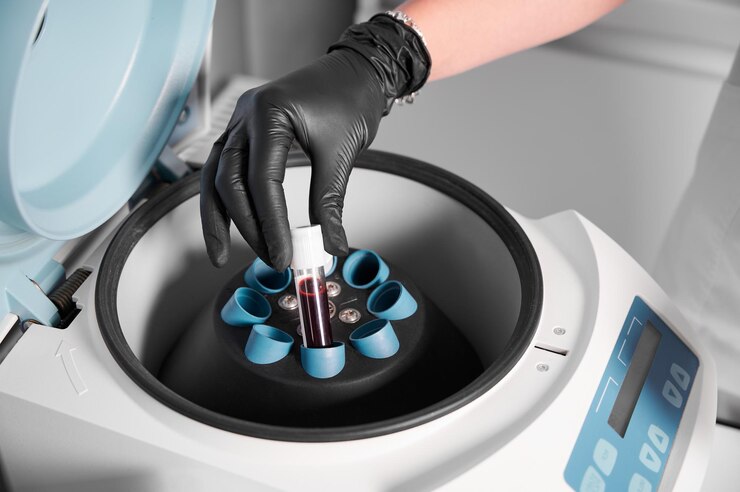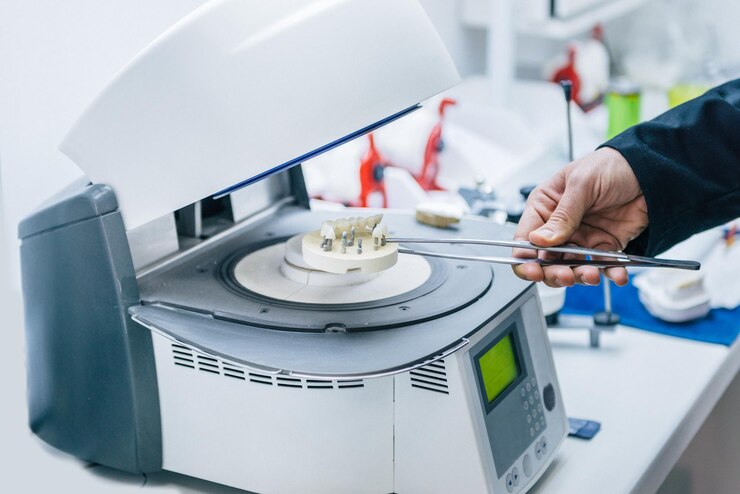The Centrifuge: A Workhorse of the Laboratory
Centrifuges are the unsung heroes of the laboratory world. These workhorse machines utilize centrifugal force, a force generated by spinning an object at high speeds, to separate mixtures based on the size, shape, and density of their components. They play a crucial role in countless scientific disciplines, from biology and medicine to chemistry and environmental science.

How Does a Centrifuge Work?
Imagine swirling a cup of coffee with cream. The heavier coffee grounds remain near the bottom, while the lighter cream rises to the top. This is a simple illustration of the principle behind centrifugation. Inside a centrifuge, a rotor holds samples contained in centrifuge tubes. As the rotor spins at high speeds, a force pushes the denser components outwards, while the less dense elements migrate inwards. By carefully controlling the speed and duration of centrifugation, scientists can effectively separate complex mixtures.
Applications of Centrifuges in the Lab
Centrifuges have a vast array of applications in diverse scientific fields. Here are some prominent examples:
- Biology: Centrifuges are used to isolate cells, organelles, viruses, and proteins from biological samples. This is essential for various downstream analyses, like cell culture, protein purification, and viral diagnostics.
- Medicine: In clinical laboratories, centrifuges play a vital role in processing blood samples. They separate red blood cells from plasma, enabling analysis of blood components for diagnosis and monitoring of various conditions.
- Chemistry: Centrifuges are used for sample preparation in various chemical analyses. They can be employed to separate precipitates from solutions, isolate nanoparticles, and clarify solutions for further experiments.
- Environmental Science: In environmental research, centrifuges are used to analyze water and soil samples. By separating suspended particles, scientists can assess water quality or quantify pollutants in soil samples.
Types of Centrifuges
Centrifuges come in various shapes and sizes, each suited for specific applications. Here’s a breakdown of some common types:
- Low-Speed Centrifuges: These centrifuges operate at moderate speeds (up to a few thousand rpm) and are ideal for separating large particles, like sediment from liquid samples.
- High-Speed Centrifuges: These centrifuges reach higher speeds (up to 20,000 rpm or more) and are used to separate smaller particles, such as organelles and bacteria.
- Ultracentrifuges: These high-powered machines achieve exceptionally high speeds (up to 100,000 rpm or more) and are used to separate incredibly small particles like viruses and macromolecules.
- Microcentrifuges: These compact centrifuges are designed for small sample volumes, typically used in molecular biology research.
- Refrigerated Centrifuges: These centrifuges incorporate a refrigeration unit to maintain low temperatures during centrifugation. This is crucial for temperature-sensitive samples, such as enzymes and proteins.

Centrifuges are indispensable tools in countless scientific endeavors. Their ability to separate mixtures based on size, shape, and density facilitates a wide range of research and diagnostic procedures.
Choosing the Right Centrifuge
Selecting the right centrifuge depends on several factors, including:
- Sample type and volume: Consider the size and density of components you wish to separate and the required sample volume.
- Desired separation efficiency: Higher speeds are needed for separating smaller or less dense particles.
- Budget: Centrifuges range in price based on their capabilities and features
Equip Your Lab for Success: Centrifuges from eqipped.com
In the heart of Agra, eqipped.com stands as a leading supplier of top-notch laboratory equipment. Among their vast offerings, centrifuges hold a prominent position. These workhorse machines are essential for researchers and scientists across various disciplines. eqipped.com understands the critical role centrifuges play and offers a comprehensive selection to cater to diverse laboratory needs.

